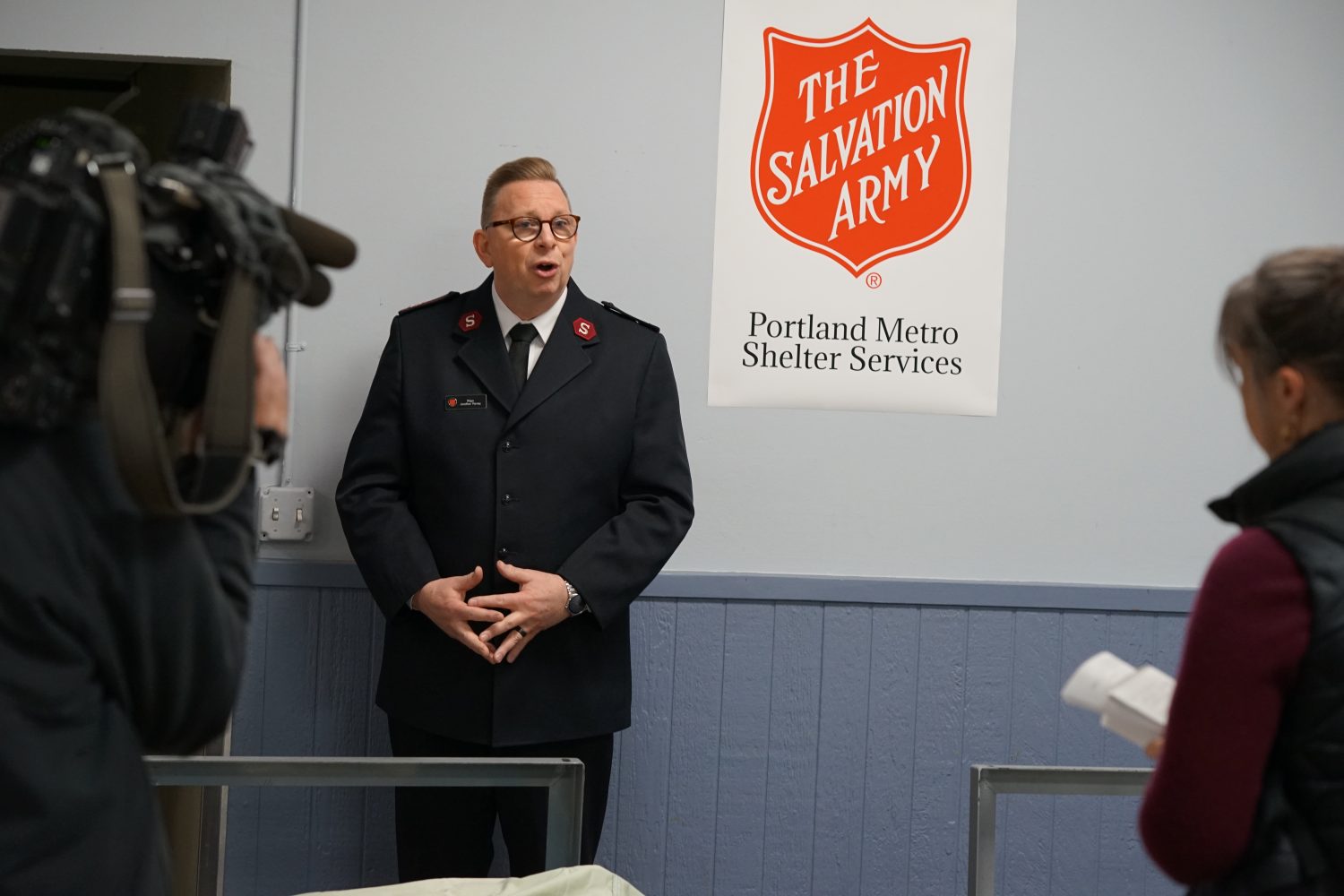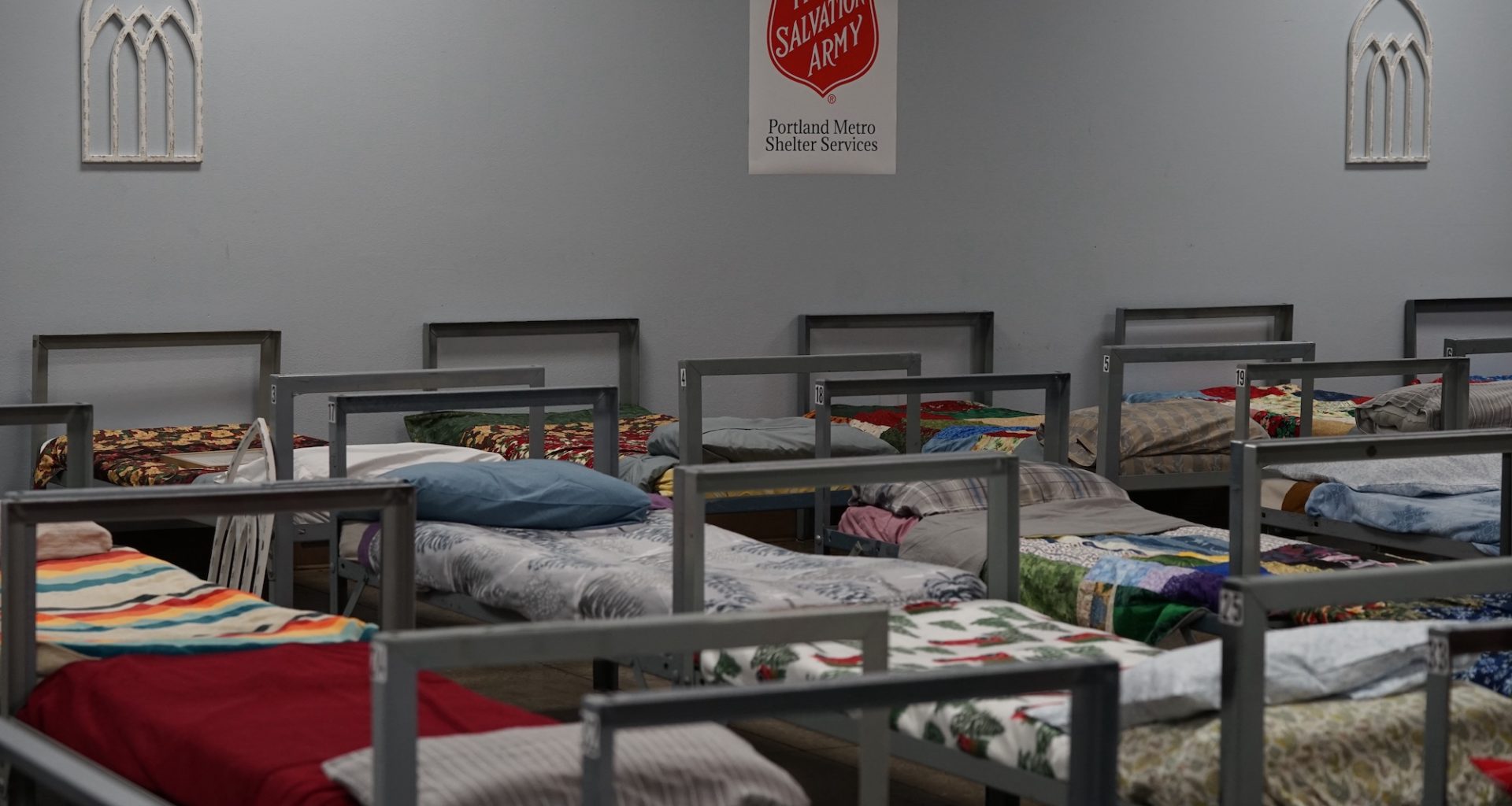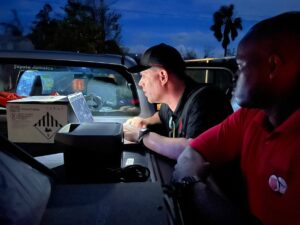The Salvation Army partners with local governments to open a pair of shelters in Portland, Oregon.
The streets of Portland, Oregon, get cold in the winter, especially at night, when temperatures often drop into the 30s or below. For the city’s unhoused community, finding a warm place to sleep can be a struggle.
With that in mind, The Salvation Army partnered with the City of Portland and Multnomah County to open two overnight shelters Jan. 7. While the shelters provide immediate relief from the elements, they may also become a bridge from the street toward permanent housing.
“The Salvation Army in Portland Metro strives to offer sheltering opportunities that promote dignity and respect, ultimately leading to renewed hope,” said Divisional Secretary for Business/Portland Metro Coordinator Captain Peter Pemberton.
One location, at SAFES (Salvation Army Female Emergency Shelter) in Old Town Portland, provides 52 beds for women and returns the building to its original purpose—sheltering women—after several years of alternative use.
“The expansion of shelter bed options in Portland aligns with our mission to ensure that every unhoused individual has an opportunity to find a safe place to lay their head at night.”
Major Jonathan Harvey
The other location, in North Portland at the Moore Street Corps and Community Center, offers 148 sleeping mats for all genders. The Salvation Army’s street outreach teams are communicating these sheltering opportunities to those they encounter, according to Director of Multnomah County Sheltering Programs Justin Moshkowski.
“We are looking to increase contact with our street outreach teams to encourage resource connection opportunities,” he said.
With funding from the City and the County, the shelters operate nightly on a first-come, first-served basis from 7 p.m. to 7 a.m., for 90 days, and will transition to 24-hour availability during severe weather. The facilities offer light food and hygiene supplies, plus information on further services leading to permanent housing. Both locations allow pets.
Moshkowski said so far the shelters have been well received.
“Many come in and immediately settle down to fall asleep,” he said. “However, we have received positive responses about cleanliness and feeling safe. In general, people are still stabilizing and adapting. It’s a new norm for their daily routines.”
He said the SAFES location is seeing some familiar faces.
“Many of the former participants have returned to the shelter and are very excited about the opportunity to sleep safely again,” he said. “Similarly, our previous volunteers and others previously connected to the SAFES campus have expressed excitement, even with the realization that this is temporary.”
The 90-day shelter offering is a first-step response, Moshkowski said, noting ongoing conversations are taking place with city officials to determine future opportunities for The Salvation Army’s participation in addressing the community’s sheltering needs.

“Caring for unhoused Portlanders is a large part of what The Salvation Army does every day,” said Cascade Divisional Commander Major Jonathan Harvey during a Jan. 6 press conference at SAFES. “The expansion of shelter bed options in Portland aligns with our mission to ensure that every unhoused individual has an opportunity to find a safe place to lay their head at night.”
Harvey said The Salvation Army is always “ready and prepared” to move on whatever the community needs as funding is available.
Homelessness is perhaps Portland’s biggest challenge. The overall number of people experiencing homelessness in Multnomah County, where most of Portland Metro lies, increased by 65 percent from 2015–2023 to 6,300 individuals.
This was despite efforts from the City of Portland, which spent $1.7 billion on affordable housing development and other services during the same period. Meanwhile, the January 2024 Point in Time homeless count in Multnomah County estimated 11,153 people experiencing homelessness, a sharp increase from the 2023 count of 6,297.
The City of Portland and Multnomah County announced the new overnight shelters in December 2024, with each government contributing $375,000 to the effort, spearheaded by Multnomah County Chair Jessica Vega Pederson, Mayor Ted Wheeler and Mayor-elect Keith Wilson.
“We cannot solve our homelessness crisis fast enough, especially for the many people sleeping in the cold on our streets tonight,” Vega Pederson said. “These overnight beds, put in place in addition to severe weather shelter beds, are an important step in providing the respite people need and are part of the overall work we’re doing as part of the Homeless Response System to shelter and house people and prevent homelessness in the first place.”
Harvey also spoke to the vast array of reasons why people end up on the streets.
“Our job is to help them navigate a way off the streets and into a permanent solution,” he said.
Ultimately, it’s about restoring hope.
“We pray that our residents find something attractively different about us,” Pemberton said, “a difference that fosters curiosity from our participants to open dialogue where we can tell them about the love of Christ Jesus.”
Do Good:
- Imagine we had a good-living modern village with real talk, real stories and real support for being human and hopeful. Join the Hopefuls Collective and find a place of low-pressure, high-encouragement love anytime you need it, whether you know it or not. Get in the group today.












